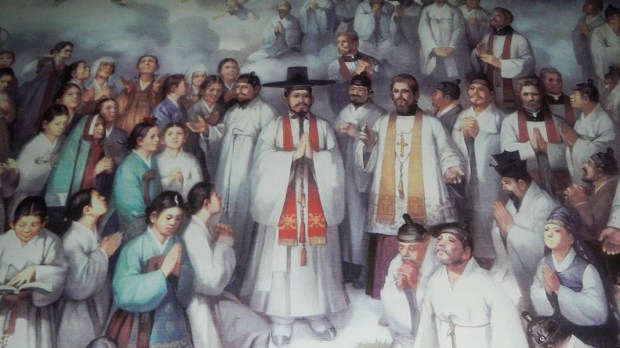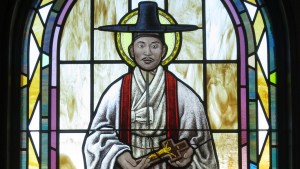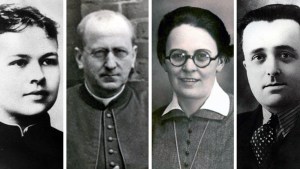Terrorsm is a particularly deep darkness, for it targets innocent civilians during the everyday circumstances of life. The Catechism of the Catholic Church adds, “Terrorism threatens, wounds, and kills indiscriminately; it is gravely against justice and charity” (CCC 2297).
How do we respond as Christians, discerning what God is calling us to do in the face of this new reality? Once again we do well to look at the lives of the saints.
There are numerous holy men and women who lived through times of terror, but here are three who stood in the face of fear and conquered it with love and mercy.
Bl. Leonid Feodorov
Born in a Russian-Orthodox family in 1879, Feodorov first enrolled in the Orthodox Ecclesiastical Academy to become a priest, but then left the school to embrace Catholicism. He traveled to Rome and was received into the Catholic Church and studied there under the pseudonym of “Leonidas Pierre,” in order to avoid the Tsar’s secret police.
Feodorov was ordained into the Russian Greek Catholic Church and returned to Saint Petersburg shortly before the first World War. He was immediately exiled to Siberia because his presence threatened the Russian Orthodox state religion. Feodorov was released after the February Revolution, but then arrested again after the Communist government took over.
He lived in exile for the rest of his life, ministering to the faithful, celebrating covert Masses and conducting catechism classes. He died in 1935 due to the hard labor he was forced to endure. He composed this prayer for unity during his life:
“Merciful Lord Jesus, Our Savior, hear the prayers and petitions of Your unworthy sinful servants who humbly call upon You and make us all to be one in Your one, holy, catholic, and apostolic Church. Flood our souls with Your unquenchable light. Put an end to religious disagreements, and grant that we Your disciples and Your beloved children may all worship You with a single heart and voice. Fulfill quickly, O grace-giving Lord, your promise that there shall be one flock and one Divine Shepherd of Your Church; and may we be made worthy to glorify Your Holy Name now and ever and unto the ages of ages. Amen.”
St. Andrew Kim Tae-gŏn
The first Korean-born Catholic priest, Saint Andrew was baptized Catholic at an early age in a land dominated by Confucianism during the 19th century. At the time the Joseon Dynasty, which favored a hierarchical society with various classes, ruled Korea. The rulers saw the thousands of lay Catholics as a threat to the very essence of their society. Since the Catholics met together regardless of class, they were believed to be enemies of the kingdom.
In all, nearly 10,000 Catholics were hunted down and killed because of their faith. One of those persecuted was Andrew Kim Tae-gŏn, who had spent some time pursuing the priesthood outside of Korea, but then returned to minister in secret. He was successful for a time, but was then discovered and killed for his faith.
Before his death, he wrote these words to his parishioners (found in the Office of Readings): “Persecution still rages, and as a result many who are friends in the household of the faith…have been thrown into prison and like you are experiencing severe distress…Persecution…can only be regarded as the command of the Lord or as a prize he gives or as a punishment he permits…Hold fast, then, to the will of God and with all your heart fight the good fight under the leadership of Jesus; conquer again the diabolical power of this world that Christ has already vanquished.”
St. Maria Elizabeth Hesselblad
Canonized a saint in 2016, Hesselblad was a Swedish sister who lived in Rome during the Second World War and saved the lives of 60 people who hid in her monastery. One of the families saved was that of Piero Piperno, a Jew targeted by the Nazi regime. Piperno recounted the story for Aleteia in an interview, saying, “When she welcomed us in this house…Blessed Mother Elizabeth told us that we should follow our religious traditions. It was uncommon in that time for a representative of the Church to say that…. She saved our lives, but above all, in those dark times, she recognized the dignity of our religion.”
She was courageous in a time of darkness when her acts of charity could have sent her to Auschwitz. In the face of fear, she boldly followed God’s plan, accepting whatever may happen.
The organization Yad Vashem recognized her as a “Righteous Among the Nations” due to her work in assisting Jews during World War II.



